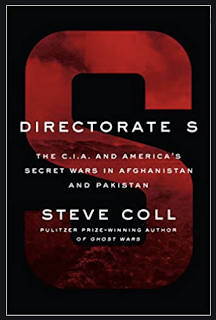A few years ago, an old Afghan friend turned up and Delhi and we decided to meet at Lajpat Nagar. "This is AK", he said introducing a compatriot, "He is a Tajik but we are still good friends."
I knew that my friend was a Pathan but the introduction left me baffled. There I was, a South Indian, born and brought up in the north, sitting in a bustling market built from scratch by punjabis displaced by the partition...but I just could not imagine introducing a friend from UP, Mizoram or Gujarat, or anywhere else in India, in this way.
It is only later, after serving two UN assignments in Afghanistan that I began to understand that the caveat 'still good friends' was actually an achievement in itself. In Kabul I had found a city that was struggling to recover from years of war and strife, a city divided along ethnic lines, where communities sought the safety of numbers.
Once while driving from Jemal Mena and Kabul University towards Sevom Aqrab, we got stuck in a traffic jam. A colleague pointed to the traffic junction and reminisced, "When I was in school this was a dangerous crossing...on this side were the Tajiks, on the other, the Uzbeks and across the road, the Hazaras...all suspicious of each other, trying to keep the Taliban out of their neighbourhoods...there were dead bodies all over the place...you could get killed simply for responding to a casual greeting with the wrong accent of Dari or Pashto.."
It is a difficult world to explain or understand. Steve Coll's latest book, "Directorate S", tries to give you a bird-eye (or blimp) view of the other side of the story. One that enfolds after 9/11 and the arrival of USA into this tinderbox, seeking Al Qaida, Osama bin Laden, and revenge for the attack on USA.
An ultimatum was given to Mulla Omar and the Taliban leadership - surrender your guests OBL, and his AQ minions, or else. Bound a code of honour, and, perhaps, by naiveté, they refused and opted for the 'or else'. That autumn US-led coalition dropped about 12,000 bombs on Afghanistan...about 40% were "dumb", unguided resulting in thousands of civilian deaths.
The Soviet invasion of 1989 had claimed an estimated one to two million lives, or up to 10% of the population. This US invasion also caused about 140,000 deaths directly by the end of NATOs formal combat role in 2014. While the US-led allies spent about $60 billion a year in men, materials and 'humanitarian aid' in Afghanistan, the Taliban found refuge in Pakistan and managed with an estimated budget o $100 million annually. from Arab donations, drug dealing, protection rackets, local taxation, extortion and kidnapping.
Now what about the title of the book, 'Directorate S'? Well the author does not have much to offer other than patchy details about ISI and its machinations. The focus of the book is on allied generals, ambassadors, assorted dictators, dubiously 'elected' leaders and diplomats.
Steve Coll's latest book reads like a thriller but it leaves you disappointed because the book is essentially about short-sighted Americans, not the Afghans, ISI or a way out of this mess. It describes two decades of disjointed war which has turned out to be as effective as most of the allied bombs - dumb.
-------------------------------------------------------
REFERENCES & LINKS
Coll, Steve (2018): DIRECTORATE S - The CIA and America's Secret Wars in Afghanistan and Pakistan
Kabul's All Seeing Blimps - https://www.wired.com/2011/01/all-seeing-blimp/







No comments:
Post a Comment